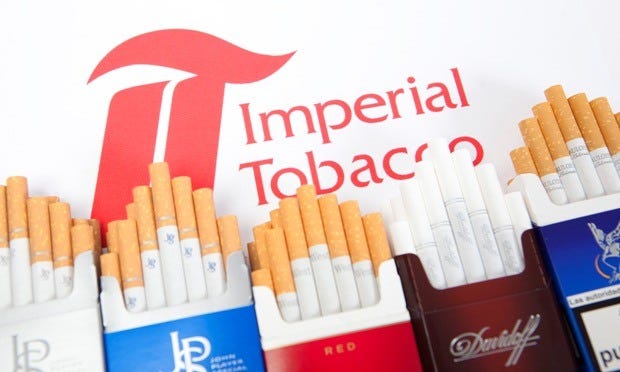THE rapid rise in e-cigarette sales is threatening to wipe out tobacco bonds sooner than expected, it has been revealed.
Tobacco bonds were forecast by many analysts to begin defaulting within the next decade but as more Americans swap cigarettes for vaping "far quicker than anticipated" - some are predicted to default in less than five years.
In 1998, big tobacco companies agreed to make annual payments to most U.S. states to cover medical costs for sick smokers.
Many states opted to securitize that stream of money by selling municipal bonds backed by the expected payments from tobacco companies.
However, the payments are tied to smoking rates. Fewer shipments of cigarettes means less money to back the bonds - and smoking rates have been falling.
This means that when a bond defaults, the bond issuer - in this case the US states - fails to make its annual payment to the bond holder.
It typically occurs when the bond issuer has run out of cash to pay its bond holders - and with tobacco bonds relying on cash coming in from cigarette sales, this process could happen far sooner than expected.
Cigarette consumption has dropped an annual average of 3.4 per cent since 2000 with bonds structured to withstand consumption declines of only 2 to 3 per cent.
Some analysts are now predicting that if the number of smokers making the switch to vaping continues at its current pace and drops by another 6 to 7 per cent, the defaults could happen within a matter of years.
"If the decline goes to 6 or 7 percent, it will be very quick," said Tom Metzold, portfolio manager at Eaton Vance Investment Managers according to news agency Reuters.
"I think that the first ones are probably five years away," he said in reference to defaults.
While still a small part of the cigarette market, sales of e-cigarettes and vaporizers have already grown to be worth more than $2.2 billion from next to nothing four years ago.
By some estimates, they will capture more than half the smoking market within a decade, and tobacco companies are already investing heavily in vaping to secure their place in this relatively new and emerging market.
"We believe consumption of e-vapor will eclipse consumption of combustible cigs over the next decade as technology improves," wrote Bonnie Herzog, analyst at Wells Fargo, who has tracked the tobacco industry for years, in a recent report.
The states with the highest populations, such as California and New York, are owed the most. The majority of them arranged to get much of their money up front by selling bonds and pledging the annual payments to the bond holders. But pay outs could dry up far sooner than expected, as vaping in these two states are following the US trend of rising year on year.
Earlier this week, however, San Francisco and its neighbouring Californian county, San Mateo, voted to ban all flavoured vaping e-liquids.
Critics of the ban said not only will it harm vape businesses in the Californian city and neighbouring towns, it will also make it harder for adult smokers to quit.
Meanwhile, a New York flavour ban has advanced to State Senate after members of the Senate Health Committee voted 14 to 1 in favour.
The bill sponsored by New York State Senator Kemp Hannon, a Republican, lays the foundation for what could be a state-wide flavour ban on all e-liquid products, with the exception of tobacco and menthol flavours by the end of this year.






Leave a comment
This site is protected by hCaptcha and the hCaptcha Privacy Policy and Terms of Service apply.